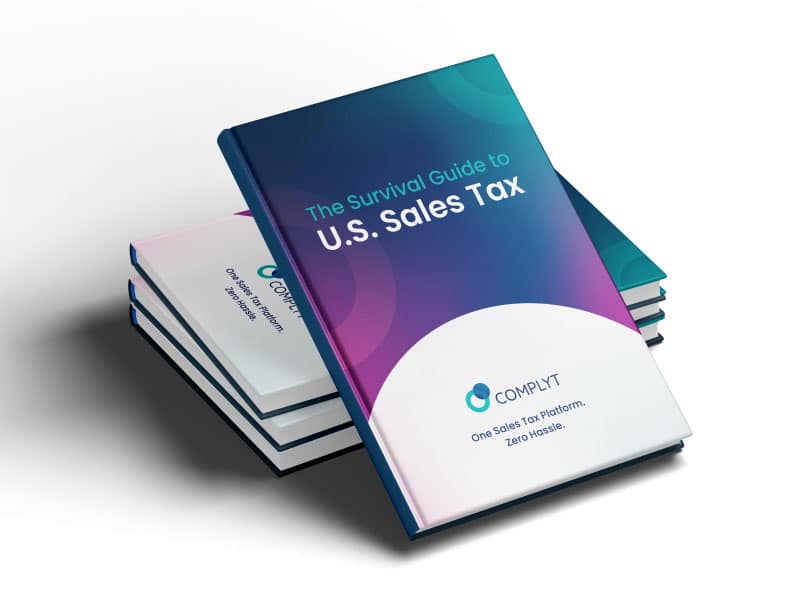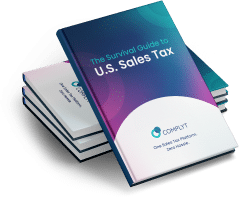What is the sales tax rate in South Carolina?
South Carolina’s general state sales tax rate is 6%, which applies to most sales of tangible personal property.
However, local jurisdictions (counties and municipalities) are allowed to impose their local sales and use tax on top of the state rate, which can vary by locality and range from 1% to 3%.
As a result, the total sales tax rate in South Carolina can range from 6% to 9%, depending on the location of the sale.
When should your business collect Sales Tax in South Carolina?
In South Carolina, businesses must collect and remit sales tax when they have a nexus in the state.
A nexus is established when a business has a physical presence or an economic connection to the state.
Examples of physical presence include having an office, warehouse, or employee within the state. Economic nexus, on the other hand, is typically determined based on the amount of sales or transactions conducted within the state.
South Carolina Physical Sales Tax Nexus
A physical sales tax nexus in South Carolina is typically established through tangible connections to the state, such as having a storefront, office, or employee there.
Sales Tax Physical Nexus checklist for South Carolina
Businesses can use the following checklist to determine if they have a physical sales tax nexus in South Carolina:
- Maintaining an office or place of business in South Carolina
- Employing salespeople, representatives, or agents in the state
- Holding inventory or owning property within the state
- Leasing equipment or real property in South Carolina
- Providing services or conducting activities in the state
If any of these criteria apply to your business, you likely have a physical sales tax nexus in South Carolina and must collect and remit sales tax on sales made within the state.
South Carolina Economic Nexus Threshold: Revenue, Thresholds and Transactions
South Carolina has adopted economic nexus laws requiring out-of-state businesses to collect and remit sales tax if they meet certain revenue or transaction thresholds. In South Carolina, the economic nexus threshold is $100,000 in gross revenue from sales into the state in the current or previous calendar year.
Businesses exceeding this threshold must register with the South Carolina Department of Revenue, collect the applicable sales tax, and file regular sales tax returns.
Which services are taxable in South Carolina?
In South Carolina, many services are exempt from sales tax. However, there are some services that are subject to sales tax, including but not limited to:
- Telecommunication services
- Laundry and dry cleaning services
- Furnishing accommodations (e.g., hotels, motels)
- Electricity, natural gas, and other energy products
- Repair and maintenance services for tangible personal property
Note that this list is not exhaustive, and sales tax on services may vary depending on specific circumstances. It’s essential for businesses to stay updated on the latest tax regulations in South Carolina and consult with a tax professional for accurate tax advice.
South Carolina Sales Tax on Products: How to Calculate What Your Business Should be Charging
To calculate the sales tax you should charge on products sold in South Carolina, follow these steps:
Determine the location of the sale. In South Carolina, the tax rate varies depending on the location of the sale, with a base rate of 6% and additional local taxes that can bring the total rate up to 9%.
Identify the taxable items. In South Carolina, most tangible personal property is subject to sales tax, including clothing, electronics, furniture, and appliances. Some items, like unprepared food and prescription drugs, are exempt from sales tax.
Apply the appropriate tax rate. Multiply the total sales amount for taxable items by the sales tax rate for the location of the sale.
Collect the calculated sales tax from customers at the point of sale and remit the correct sales tax amount to the South Carolina Department of Revenue.
How much is the South Carolina clothing tax?
In South Carolina, clothing is generally subject to the state’s base sales tax rate of 6%, plus any local sales taxes. However, the state offers a sales tax holiday on the first Friday, Saturday, and Sunday of August each year. During this holiday, certain items, including clothing and accessories, are exempt from sales tax.
Do South Carolina sales tax holidays affect South Carolina clothing tax?
Yes, during the sales tax holiday, certain items, including clothing, footwear, and school supplies, are exempt from both state and local sales taxes.
This annual event usually occurs on the first weekend of August and is a great opportunity for consumers to save money on back-to-school purchases. Retailers should be aware of the sales tax holiday and update their point-of-sale systems to ensure accurate tax collection during this period.
South Carolina Online Sales Tax: Are SaaS and Digital Services Taxable?
Only a small number of digital goods, including the streaming of video, are subject to sales tax in South Carolina. But while the state doesn’t generally tax the sale of digital goods or electronically delivered software, it does tax cloud computing.
SaaS Sales Tax South Carolina: Are software subscriptions taxable?
Software as a Service (SaaS) is indeed considered taxable in Carolina, as the state sees software subscriptions as a leasing of tangible property. So South Carolina SaaS Sales Tax compliance is a vital consideration for digital service providers.
How can a business get a sales tax permit in South Carolina?
To get a sales tax permit in South Carolina, follow these steps:
- Register your business with the South Carolina Department of Revenue.
- Apply for a Sales and Use Tax License online through the MyDORWAY portal.
- Provide the required information, including business details, ownership information, and the types of products or services you offer.
- Pay the registration fee, if applicable.
- Receive your Sales and Use Tax License, which allows you to collect sales tax from customers.
Collecting Sales Tax in South Carolina as a Business
As a business owner in South Carolina, it is your responsibility to collect the appropriate sales tax from your customers on taxable sales and remit it to the state. Here are some important considerations for collecting sales tax in South Carolina:
Determine the Tax Rate: The state sales tax rate is 6%, but local jurisdictions may impose additional taxes, making the total rate up to 9%. Use the South Carolina Department of Revenue’s website to find the correct tax rate for your location.
Identify Taxable Sales: Most tangible personal property is subject to sales tax in South Carolina, including clothing, electronics, and furniture. Some services, such as telecommunication services and accommodations, are also taxable. Ensure you know which items and services you offer are subject to sales tax.
Collect the Tax: Include the appropriate sales tax amount in the total price of taxable sales, and collect it from your customers at the point of sale.
Maintain Accurate Records: Keep detailed records of all your sales, the sales tax collected, and any exemptions or deductions. You will need this information when filing your sales tax returns.
South Carolina Tax Return Due Dates Explained
The frequency of sales tax return filing in South Carolina depends on the amount of sales tax you collect. Filers are categorized as monthly, quarterly, or yearly:
Monthly Filers: Businesses that collect more than $15,000 annually in state sales and use tax.
Quarterly Filers: Businesses that collect between $100 and $15,000 annually in state sales and use tax.
Yearly Filers: Businesses that collect less than $100 annually in state sales and use tax.
Sales tax returns are due on the 20th of the month following the end of the reporting period. For example, the return for January is due on February 20th.

